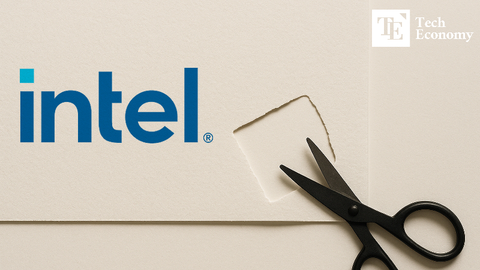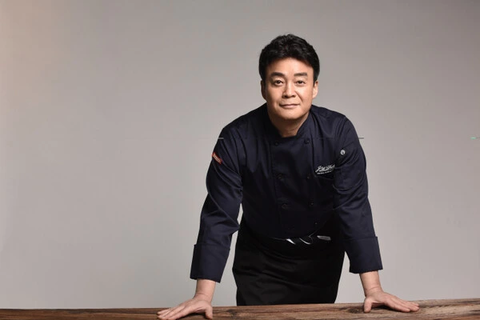Input
Changed
The Rise of AI in Nursing: Revolutionizing Hospital Care Nurses Push Back: The Concerns Over Job Security and Patient Care The Future of Nursing: Can AI and Humans Work Together?
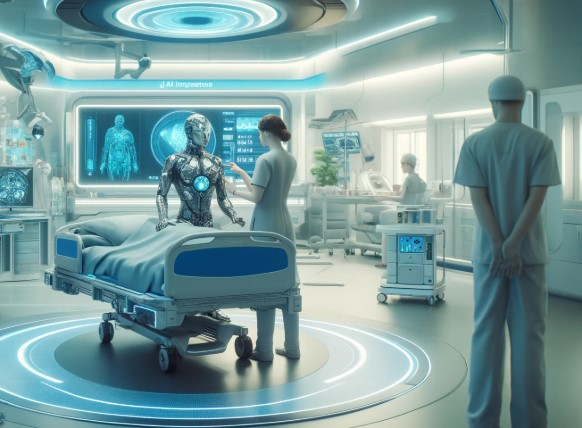
The Rise of AI in Nursing: Revolutionizing Hospital Care
The healthcare sector is undergoing a significant transformation as artificial intelligence (AI) begins to take on more prominent roles, especially in hospital care. The rise of AI nurses has generated a great deal of attention, prompting both excitement and apprehension among healthcare workers, particularly human nurses. As AI technologies become increasingly integrated into hospital settings, some nurses are voicing their concerns about the impact of automation on their profession. These advancements in AI have the potential to change the nature of nursing care, but they also raise questions about job security, patient care quality, and the future of healthcare work.
The shift toward AI nurses comes at a time when the healthcare industry is grappling with significant workforce shortages, rising costs, and increasing demand for services. AI promises to alleviate some of these challenges by automating routine tasks, providing data-driven insights, and improving the efficiency of healthcare delivery. However, human nurses, who have long been the backbone of patient care, are beginning to push back against the growing role of machines in their field.
Artificial intelligence is already reshaping various aspects of healthcare, with machine learning algorithms and robotic systems taking on tasks ranging from administrative duties to clinical decision-making. One of the most notable advancements has been the emergence of AI-powered nursing assistants, which are designed to help with routine patient care tasks, such as monitoring vital signs, administering medications, and providing emotional support.
These AI nurses are equipped with advanced sensors, cameras, and algorithms that allow them to gather real-time data about patients' conditions. They can analyze this data quickly and accurately, providing healthcare providers with actionable insights that improve patient care. In addition, AI nurses can operate around the clock, providing continuous monitoring of patients and ensuring that care is delivered in a timely and efficient manner.
For hospital administrators, AI nurses represent an appealing solution to several pressing challenges. The healthcare industry has long struggled with staffing shortages, particularly in nursing, and AI nurses offer the potential to fill gaps in care delivery. By automating certain tasks, AI nurses free up human nurses to focus on more complex and specialized aspects of patient care. Furthermore, AI nurses can reduce the administrative burden on nurses, allowing them to spend more time interacting with patients and providing direct care.
In theory, AI nurses could help address some of the most pressing issues in modern healthcare, including long wait times, overworked staff, and the need for cost-effective solutions. However, this technological advancement is not without its controversies, particularly among human nurses who feel threatened by the rise of AI in their field.
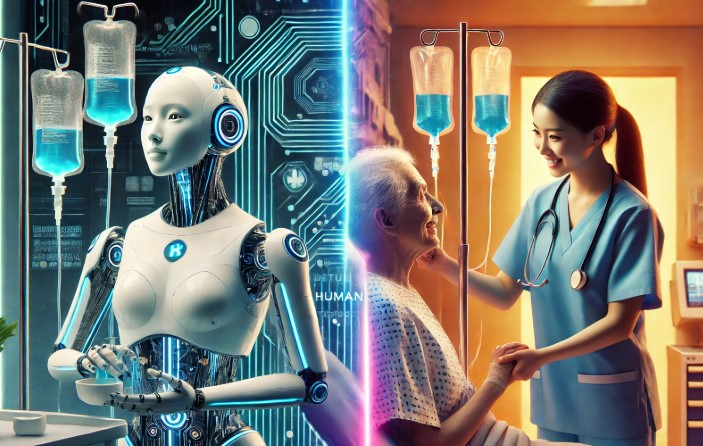
Nurses Push Back: The Concerns Over Job Security and Patient Care
As AI nurses become more prevalent in hospitals, human nurses are increasingly vocal about their concerns. Some nurses worry that AI technology will replace them, leading to job losses and decreased job satisfaction. These fears are not unfounded, as the automation of healthcare tasks could eventually reduce the need for human nurses to perform certain functions, such as monitoring vital signs or administering routine medications.
Nurses also argue that AI, while capable of handling certain tasks, cannot replicate the essential human touch that is central to nursing care. Nursing is not just about performing clinical tasks; it is also about providing emotional support, building relationships with patients, and offering comfort during difficult times. For many nurses, these aspects of the job are irreplaceable by machines.
Moreover, human nurses are concerned about the potential for AI systems to make errors or overlook critical nuances in patient care. While AI can process vast amounts of data and identify patterns that humans might miss, it is still far from perfect. For example, an AI system might misinterpret a patient's vital signs or fail to recognize subtle changes in their condition that indicate a serious issue. Human nurses, with their experience and intuition, are better equipped to detect these subtleties and provide the necessary care.
Another concern raised by human nurses is the potential for AI to lead to a loss of the personal connection between nurses and patients. Many nurses argue that the emotional bond they form with patients is a key component of healing. They believe that patient care goes beyond medical procedures, and it involves offering empathy, compassion, and understanding—qualities that are difficult, if not impossible, for AI to replicate.
Despite the pushback from human nurses, there is a growing body of evidence suggesting that AI can enhance, rather than replace, nursing care. AI has the potential to streamline many aspects of healthcare, allowing nurses to focus on higher-level tasks that require critical thinking and emotional intelligence.
One of the main advantages of AI in nursing is its ability to handle routine, repetitive tasks. For example, AI systems can assist with administrative duties, such as scheduling appointments, managing patient records, and processing billing information. By automating these tasks, AI frees up nurses to devote more time to direct patient care and decision-making, areas where their expertise is most needed.
Additionally, AI can provide valuable support to nurses by offering data-driven insights and recommendations. For instance, AI systems can analyze patient data to identify early warning signs of complications, enabling nurses to intervene quickly and prevent more serious issues from arising. AI can also assist with medication management by ensuring that the correct drugs are administered at the right time and in the right dosage.
While AI may not be able to replace the human touch that nurses provide, it can certainly augment their capabilities. In fact, many healthcare experts argue that AI and human nurses can work in tandem to provide the best possible care. By leveraging AI's ability to process vast amounts of data and automate routine tasks, nurses can focus on what they do best: providing compassionate, patient-centered care.
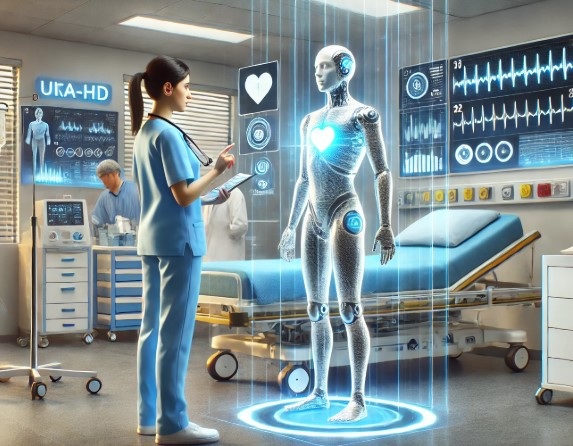
The Future of Nursing: Can AI and Humans Work Together?
Public opinion on the use of AI in healthcare has generally been favorable. Many patients and healthcare professionals alike see the potential benefits of integrating AI into the healthcare system. AI has the ability to improve efficiency, reduce human error, and provide more accurate diagnoses. In addition, AI can help address staffing shortages and ensure that patients receive timely care, even when human resources are stretched thin.
A significant portion of the public also believes that AI can help improve the quality of care by providing more personalized treatment plans. AI systems can analyze vast amounts of data from various sources, including medical records, genetic information, and lifestyle factors, to create tailored healthcare strategies for individual patients. This level of customization is difficult for human providers to achieve without the assistance of AI.
Despite concerns from some healthcare workers, there is a general sense that AI can enhance healthcare rather than replace human providers. Many experts believe that AI should be viewed as a tool that can complement, rather than compete with, human expertise. By automating certain aspects of care, AI can allow healthcare workers to focus on higher-level decision-making and patient interactions.
The integration of AI into nursing is still in its early stages, but it is clear that AI will play an increasingly important role in the future of healthcare. As AI technology continues to evolve, it is likely that more tasks will be automated, and the roles of human nurses will adapt accordingly.
Rather than being replaced by AI, nurses will likely find their roles shifting to focus on more complex and interpersonal aspects of patient care. Human nurses will remain essential to the healthcare system, but their responsibilities may evolve to align with the changing demands of an AI-driven environment. In this future, nurses will need to develop new skills to work alongside AI systems and leverage the technology to enhance patient care.
In conclusion, the rise of AI nurses presents both opportunities and challenges for the healthcare system. While human nurses may feel threatened by the growing presence of machines in their field, the future of nursing is likely to involve collaboration between AI and human expertise. By combining the efficiency and precision of AI with the empathy and intuition of human nurses, the healthcare industry can provide better, more personalized care for patients.



